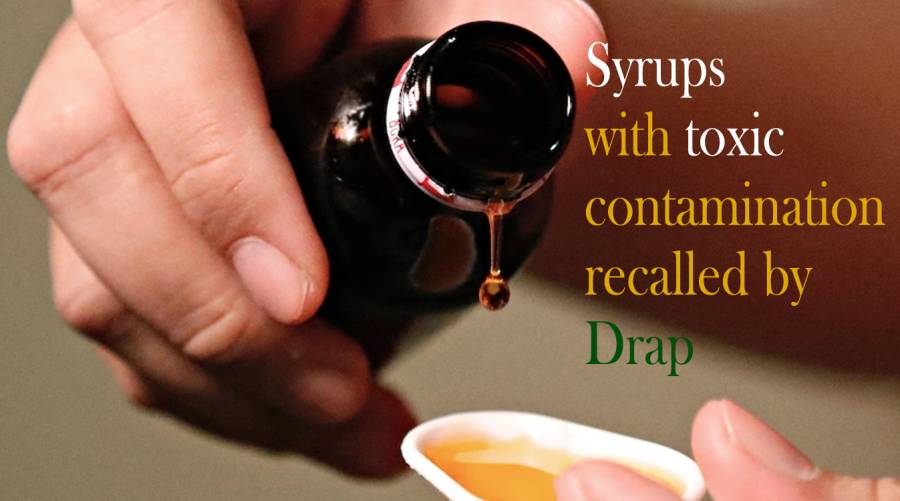Syrups with toxic contamination recalled by Drap

ISLAMABAD: After the detection of a toxic solvent -- substandard ethanol -- in nine brands of cough syrups, the Drug Regulatory Authority of Pakistan (Drap) has recalled these medicines, according to a statement released by the authority's CEO.
The detection of contamination in these cough syrups prompted the Punjab director general of excise to seek detailed information regarding the affected products.
This discovery has also spurred calls for action against the pharmaceutical companies concerned.
Drap's action follows growing concerns over toxic propylene glycol (PG) found in cough syrups, which have been linked to the deaths of over 300 children in Indonesia, Gambia, and Uzbekistan since 2022.
The World Health Organization (WHO) has linked these deaths to cough syrups manufactured in India. PG, a hazardous substance, is commonly used in liquid detergents, antifreeze, paints, coatings, and as an enhancer in pesticides.
Drap CEO Dr Asim Rauf says that nine more syrups produced by five different pharmaceutical companies were found to be contaminated. This brings the total number of companies implicated in producing contaminated syrups to seven.
On January 11, Drap had announced the seizure of a batch of contaminated propylene glycol solvent labeled as manufactured by Dow Chemical, Thailand. The drug authority has ordered the recall of any products manufactured from the same batch of propylene glycol from local and export markets.
The affected syrups, manufactured by PDH Pharma, Raazee Therapeutics, Siza International, and others, include Allerphene, Zevirol, Texcol DM, Texcol EX, Virol, Torax DM, Bronyl, and Speczine.
A recent batch of propylene glycol imported from a Thailand-based company was seized by the regulator due to the detection of impurities. The batch from Dow Chemical exhibited an alarming impurity level of 25 percent, posing serious health risks, including the potential for multiple organ failure.
Drap's warning says that PG impurities, also known as ethylene glycol (EG), can transform into toxins affecting the central nervous system and heart upon ingestion, potentially leading to fatal kidney damage.
This development follows a global incident in December 2023 when the Maldives reported contamination in medicines imported from Pakistan. Substances found in the syrups were typically used in hydraulic brake fluids, stamp pad inks, paints, plastics, and cosmetics.
In response, the WHO issued an alert regarding the products of Lahore-based pharmaceutical company Pharmix Laboratories (Pvt) Ltd, raising concerns for Pakistan's pharmaceutical industry.
Moreover, the increase in pneumonia cases in Punjab has been attributed to the prevailing winter season and resulting air pollution, particularly smog.
Smog, a consequence of air pollution, has been identified as a significant contributing factor to the rise in pneumonia cases. Punjab has reported approximately 17,000 pneumonia cases with a mortality rate of 1.3 percent so far this season. A letter has been sent to the Punjab chief controller of drugs regarding this issue.
The health department reported that the number of children who died of pneumonia in January has reached 275, with 872 children suffering from the disease in the past 24 hours across Punjab.
Earlier this month, a cough syrup from a Peshawar-based pharmaceutical company was found to contain toxic ingredients, leading to the recall of all syrups from MKB, the manufacturer in question.
Advertisement
Trending
Popular
Hair loss: Discovery uncovers key stem cells that could reverse ...
-
Broccoli sprout compound may help lower ...
11:31 AM, 25 Feb, 2025 -
Gas Pain vs. Heart Attack: How to tell ...
09:00 PM, 22 Feb, 2025 -
Coconut oil supplement shows promise ...
08:00 PM, 20 Feb, 2025 -
Normal vitamin B12 levels may still ...
05:00 PM, 19 Feb, 2025



